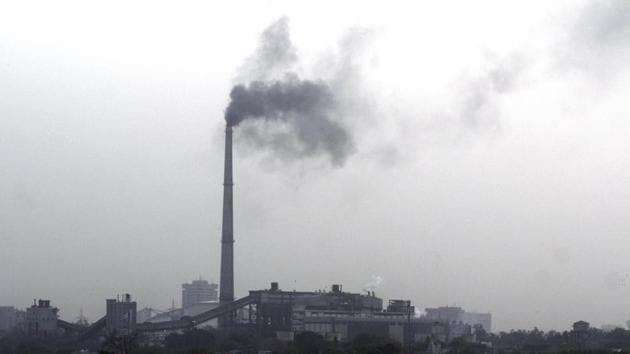The government alone can’t ensure clean air
India has been coming forward with pilot steps to tackle this problem. Sharp results will not come unless we implement specific focused projects
India is not alone in facing the problem of air pollution. Nine out of 10 people worldwide are exposed to unsafe air. This often-invisible problem adds to the loss of lives of seven million people each year, causes conditions from asthma to dementia, and, according to the World Bank, costs the healthcare system more than US $5 trillion every year. However, India faces perhaps the biggest and most wide-ranging risks.

From Delhi to Kanpur to Varanasi, in fact particularly in the entire Gangetic plain, our cities have often been listed by many as most polluted. People living in these cities know this more than anyone else. Air pollutants are definitely health hazards. More than anything else, people deserve a life with dignity and clean air and the government is conscious of the fact that providing such clean air has to remain national priority. But this task cannot be the government’s alone. It has to be a larger collaboration between everyone in this country. Each individual’s contribution will add to overall improvement. We need to fight this together.
There is no doubt that we are facing a crisis, and the government is taking it very seriously. To protect the health and wellbeing of our citizens, we launched the National Clean Air Programme (NCAP) earlier this year. The NCAP targets a 20-30% reduction of PM2.5 and PM10 concentrations by 2024, compared to 2017 levels — a target set after looking at other successful programmes in cities such as Beijing and Seoul over the same time horizon.
Air pollution comes from many sources: the burning of fossil fuels for power and transport; industry, construction & demolition, particularly chemicals and mining; agriculture, a significant source of methane; landfills; open burning of trash and agricultural waste; and dirty indoor cooking and heating. This complex picture, involving many different sectors, means that we need a comprehensive response.
The NCAP creates this response by ensuring that everybody is working together: ministries, state governments, local bodies, academia, civil society and many other partners. As our fast-growing cities are where pollution is the worst, the NCAP is also developing plans which are not general in nature but very specific to the 102 cities that have been shortlisted as major polluting cities based on the presence of the pollutants consistently for the past five years. The thrust is a city-specific, doable and impact bearing action plan.
India has been coming forward with pilot steps to tackle this problem. Sharp results will not come unless we implement specific focused projects. We have shown it in the past through diesel vehicles, the ban on pet coke, various notifications, stopping work wherever required and also reaching out to the people not just to explain the problem but also to seek support to tackle the menace. The government has put in place an ambitious programme and states like Punjab and Haryana have taken very active steps to help farmers reduce the burning of crop stubble. All the steps are cumulatively going to help us breathe easy. LED bulbs, provision of cooking gas, leap frogging from BSIV to BSVI standards, e-mobility plan and several other steps will add to our efforts.
We are seeing efforts to prioritise and incentivise electric transport. The Uttarakhand Cabinet has approved an electric vehicle manufacturing and battery charging infrastructure promotion policy for the state. The Telangana government is introducing electric vehicles in Greater Hyderabad Municipal Corporation and Telangana State Road Transport Corporation in Hyderabad. Kerala’s draft electric vehicle policy aims to reduce the number of vehicles on the road by introducing modern shared transport systems, like air-conditioned e-buses and e-autorickshaws. Delhi’s draft Electric Vehicle Policy 2018 has set a target of ensuring that 25% of all vehicles registered by 2023 are electric.
By taking all of these actions, we are not just clearing the air. We are moving towards meeting India’s commitments under the Paris Agreement and tackling climate change, as many air pollutants also serves as greenhouse gases or are emitted along powerful greenhouse gases — as is the case with fossil fuel-powered vehicles. Another example is black carbon, which is produced by diesel engines, burning trash and dirty cookstoves. Reducing the emissions of black carbon and other short-lived climate pollutants globally could slow global warming by up to 0.5°C over the next few decades.
The government will continue to strengthen its activity but the need of the hour is for everyone to join this campaign. We can, and we must, do it together.
CK Mishra is secretary, ministry of environment, forest & climate change
The views expressed are personal






